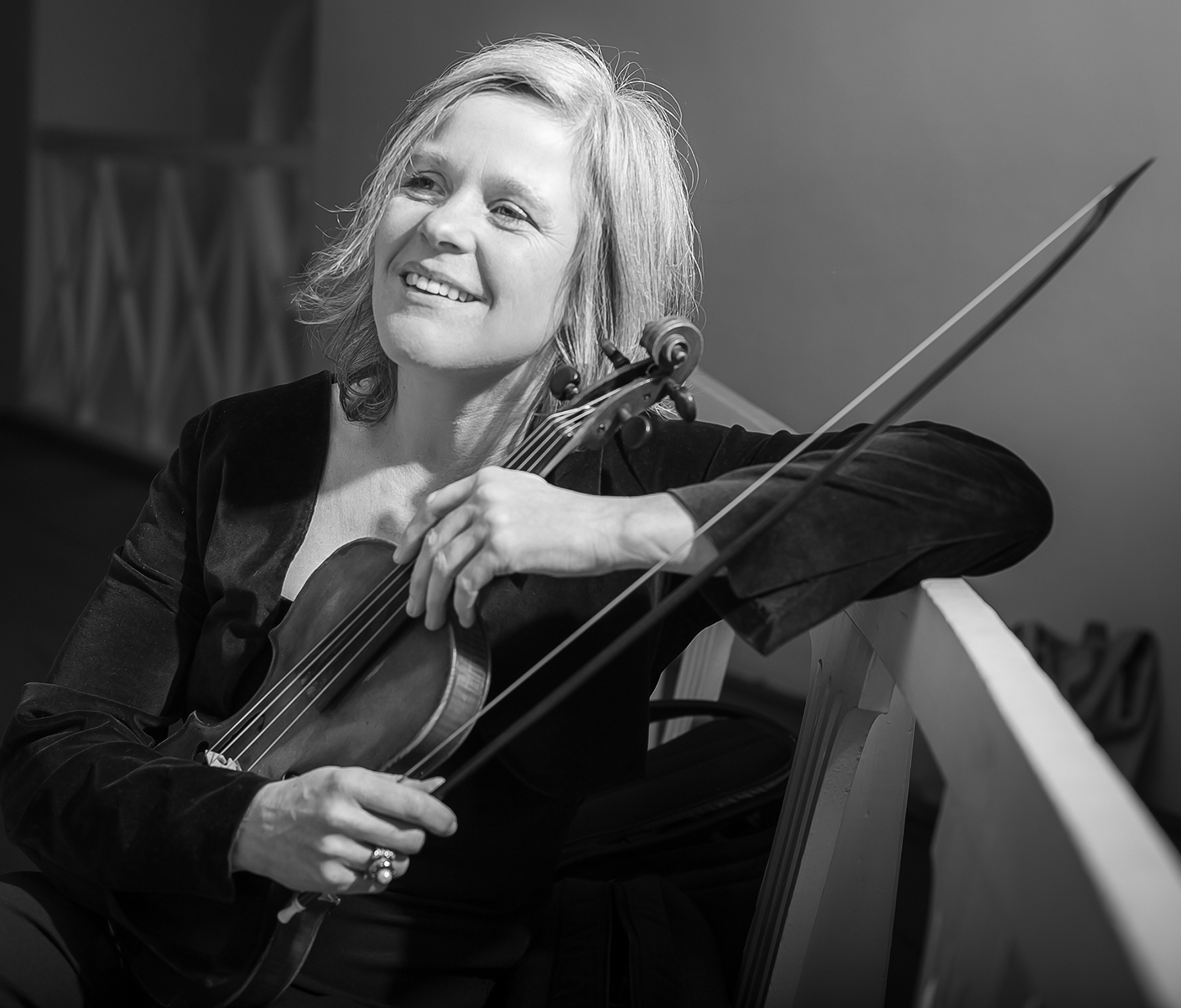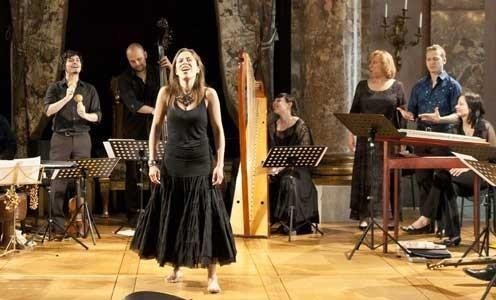L'Arpeggiata seem to revel in being L'Anachronista. The baroque-jazz group led by the Graz-born theorbo player Christina Pluhar has been proudly and brazenly flouting the dictates of those who set the rules of Historically Informed Performance (HIP) for all 15 years of their existence.
The printed programme, for example, mentioned “Francesco Turrisi – harpsichord”, and described in detail the delicious and lengthy agonies of tuning which his 1624 Ruckers copy harpsichord would have gone through prior to the concert; but what it didn't mention was that Turrisi would be spending roughly half his evening tinkling at that most obvious and hardest-to-hide non-period instrument, the Wigmore Hall's Steinway.
There is consistency – and certainly high musical quality – in all L'Arpeggiata's wilful anachronism. Turrisi's piano playing brought colour and character. The band's sound is also deeply infused by other modern instruments and by their players' jazz sensitivities. The very strong tone, and the jazz time-keeping approach of the Luxembourg double bassist Boris Schmidt are almost always there in the mix. Other modern colours are given by some of the percussion array used by the hugely impressive and inventive player David Mayoral. His use of the cajón drum would definitely be high up on any charge sheet which the HIP equivalent of the “jazz police” might one day want to throw at L'Arpeggiata.
Last night's programme was titled La Dama d'Aragó and consisted of an anthology of 16th century songs and instrumental music from Catalonia and the surrounding regions. The programme put the spotlight on soprano Núria Rial, who sang with charm, lightness of tone, expressive variety and impeccable phrasing and tuning throughout. Her expressive delays and hesitations were always well-judged and tasteful, and the band picked them up cleanly and unanimously.
 The band's 90-minute set passed quickly, but for me what the evening needed – and lacked – was a heart-stopper, a jaw-dropper, a genuine emotional heart. We were transported efficiently through an interesting programme of folk songs – about "La Margarideta" who finds endless reasons for staying in bed, for instance, or about "La Filadora" at her spinning wheel. The sequence moved swiftly through instrumental chaconnes and fandangos. Even the traditional Catalan “Song of the Birds”, which was once immortalised at heart-wrenchingly slow tempo by Pablo Casals, was here sung simply and straightforwardly – but left little impression.
The band's 90-minute set passed quickly, but for me what the evening needed – and lacked – was a heart-stopper, a jaw-dropper, a genuine emotional heart. We were transported efficiently through an interesting programme of folk songs – about "La Margarideta" who finds endless reasons for staying in bed, for instance, or about "La Filadora" at her spinning wheel. The sequence moved swiftly through instrumental chaconnes and fandangos. Even the traditional Catalan “Song of the Birds”, which was once immortalised at heart-wrenchingly slow tempo by Pablo Casals, was here sung simply and straightforwardly – but left little impression.
The encores, notably a reprise of the Chiacona by Antonio Bertali had zip and panache, and allowed instrumental soloists – notably the fleet and agile cornetto player Doron Sherwin and the expressive violinist Veronika Skuplik (pictured above right) – to shine. This programme was a welcome, if rather light, distraction from typical pre-Christmas fare.













Add comment